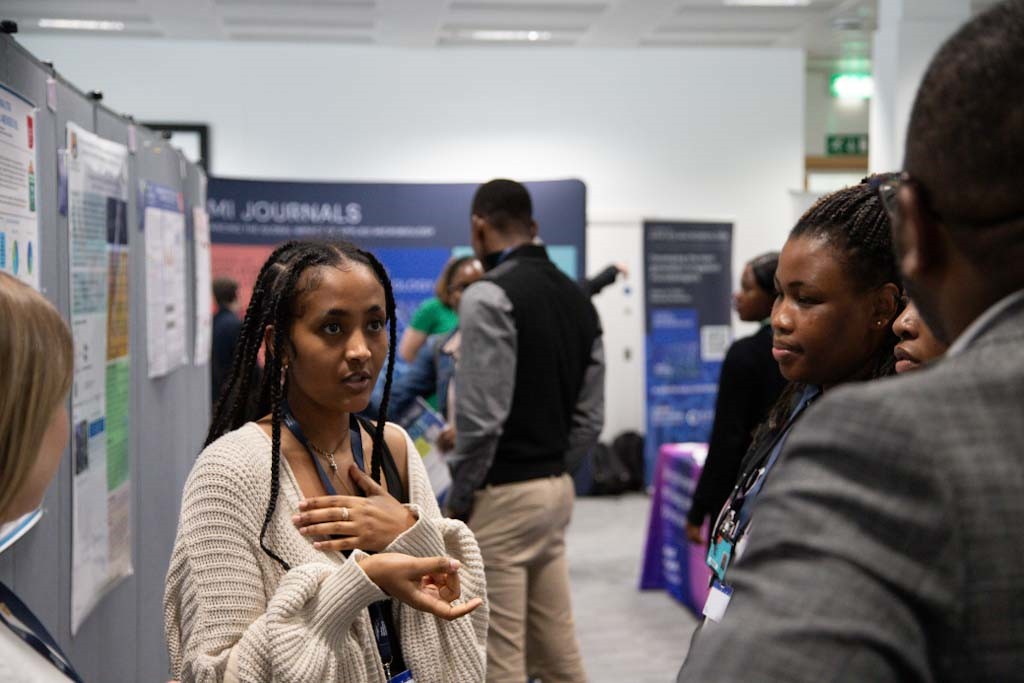Poster presentation guidelines
You have the opportunity to present a poster, with optional 1-minute-1-slide ‘poster pitch’ presentation in the main plenary.
Poster Presentation
If you’re presenting a poster, here’s what you need to know:
- Preferred size: A0 (1189 mm height x 841 mm width)
- Fixing materials: Velcro and pins will be provided on the day
Tips for your poster:
-
Keep it clear, visual and easy to read from a distance
-
Use bullet points, graphs and illustrations where possible
-
Don’t overcrowd it – less is more
-
Include your name, title, institution and contact details
We know for many of you this might be your first time – don’t worry, this is a welcoming and safe space and a great chance to share your work and practise chatting about your research.
Poster plus 1-minute-1-slide plenary ‘poster pitch’ presentation
You'll present your poster in the poster area, and you'll also have 1 minute and 1 slide to talk about your project to the main plenary audience. It’s your chance to share your work in a clear, engaging and accessible way, using simple language and good storytelling.
What we're looking for:
-
A clear background and why your research matters
-
Key findings or ideas that stay focused
-
A structure that’s easy to follow
-
Confident and enthusiastic delivery
-
A slide that supports your talk without doing all the work
-
Good use of time that keeps to the 1-minute limit
Tips for your 1-minute-1-slide poster pitch:
-
Practise with friends, houseplants or pets
-
Use strong visuals and keep text to a minimum
-
Speak as if explaining your work to someone in a different field
-
Finish with a message or takeaway you want people to remember
-
Don’t worry about being perfect – just let your passion come through
This is your space to share what you’ve been working on. We can’t wait to hear about it.
15-minute talk guidelines
You’ll have 15 minutes in total—aim to speak for around 10 minutes, with the final 5 minutes set aside for questions from the audience.
This is your space to share what you’ve been working on with a friendly group of early career researchers. Whether it’s a finished project or still a work in progress, we’re excited to hear about it.
What we're looking for:
-
A clear explanation of your research and why it matters
-
A focused talk that walks us through the key points or findings
-
A simple, logical structure from start to finish
-
Slides that support what you’re saying (without trying to say everything for you)
-
Enthusiastic and confident delivery
-
Awareness of the audience – if you need to use specialist terms, give them some context
Tips:
-
Keep the talk itself to around 10 minutes so there’s time for questions
-
Practise once or twice to get your timing right
-
Think about what you want people to remember most
-
You don’t need to cover everything – keep it clear and engaging
No need for polished perfection – just your science, shared in a way others can connect with and learn from.


